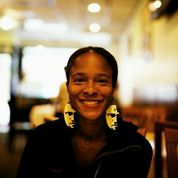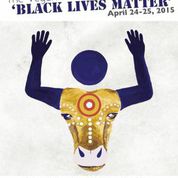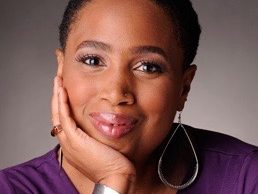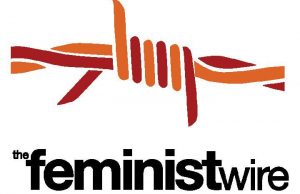Vegan Praxis, Black Lives Matter, and Water Rationing: A Conversation with Dr. A. Breeze Harper
I’d definitely call Dr. A. Breeze Harper one of the top intersectional vegan theorists today. And that’s not just hype—she most famously did this with her 2010 anthology, Sistah Vegan: Food, Identity, Health, and Society: Black Female Vegans Speak, in which she gathered a community of Black female-identified vegans to talk from their own experiences navigating their many communities and politics. Thanks to this groundbreaking work—and her founding and curating the Sistah Vegan Project website—Dr. Harper is one of the go-to experts on food-based environmental feminism. 
She applies this multidimensional thinking—combining it with a healthy frustration with the lack of solidarity within the mainstream vegan movements with racial-justice movements like the intersectionality-based Black Lives Matter—to coordinate the upcoming conference, The Vegan Praxis of Black Lives Matters. The busy social scientist, writer/speaker, partner, and mom took a few minutes to answer The Feminist Wire’s questions about the conference, her writings, and how water rationing is an environmental feminist issue.
For those who may not follow you online, what led you to organize the conference? Who are the featured speakers? How did you get them to join the roster?
Last year, I become frustrated with the taken-for-granted white post-racial epistemological center within mainstream vegan culture. There appeared to be an overall lack of interest in stepping up to the plate in terms of building solidarity with the Black Lives Matter movement and dismantling systemic racism and critiquing neoliberal whiteness [1] in general. In the fall of 2014, I decided to organize “The Vegan Praxis of Black Lives Matter: Challenging Neoliberal Whiteness While Building Anti-Racist Solidarity Among Vegans of Color and Allies.” Sistah Vegan Project is the only one to organize such a vegan-themed conference, and the response has been overwhelmingly positive. We are featuring Lauren Ornelas of the Food Empowerment Project, Liz Ross of Coalition of Vegan Activists of Color, and pattrice jones of Vine Sanctuary.
How do you define “vegan praxis?” And how do you define veganism?
Veganism defined: The root of the concept is ‘ahimsa’ which means harmlessness and non-violence applied to all people and non-human animals, as well as the Earth’s resources. In this sense, I’m not focusing on the single-issue definition that most mainstream people think of when ‘vegan’ or ‘veganism’ is mentioned (e.g. animal rights only, and only through buying vegan-labeled products and being a PETA supporter). I’m grounding dismantling systemic racism, Black liberation, and challenging neoliberal whiteness within an ahimsa framework—if that makes sense.
‘Praxis’ means you just don’t accept dogma and then uncritically use that dogma as the logic for you actions, which many of us—at least here in the USA—are trained to do in K-12 educational system.
When I speak of praxis, I am speaking of the thoughtful and critical actions one takes to change the world for the better. I draw from Paolo Freire’s and bell hooks’ (who was deeply influenced by Freire) notion of praxis that focuses on empowering the oppressed people of the world to free themselves through critical inquiry, reflection, and ongoing transformation.
What philosophies and theories undergird your practices and why? Praxis means you learn from critical observations and exchanges with other people, engage in critical reflexivity with yourself, and produce more thoughtful ways to create freedom for yourself and other oppressed beings in the world that resists the taken-for-granted logic of capitalist-colonialist configurations of power (e.g. racial hierarchies of power, heteronormativity, human domination and abuse of non-human animals). The Vegan Praxis of Black Lives Matter essentially means we’re using black feminist queer theorizing [2] to understand how Black people have, historically to the present, been excluded from justice and power—structurally, systemically, and institutionally—and how this affects or should shape vegan philosophies.
Quite a few of us are barely catching our breaths from North Charleston, SC, officer Michael Slager killing Walter Scott, and Taylor Alesena, a 16-year-old California trans teen, committing suicide, among the news of recent deaths. More directly, how does a vegan praxis respond to the seemingly unending destruction of marginalized bodies? And what would it look like?
For me, it is putting dismantling of systemic racism and neoliberal whiteness in the forefront, but using an ‘ahimsa’ foundation. This means, as we work towards ending the systemic violence against us, we do so not in a vacuum, but in a way that causes the least amount of suffering to all human and non-human beings. I remind people that this practice is not perfect, as veganism rooted in ahimsa does not mean one is expected to be 100% effective in not killing or harming any beings. The point is to work toward Black liberation while keeping in mind that all oppressions are interrelated and that engaging in collective liberation (e.g. dismantling racism, speciesism, and heterosexism and finding alternative to capitalist-based economies) means we do so in a way that causes the least amount of pain and suffering for all beings—but also see that no beings can ultimately have a life of least amount of suffering and pain if we all exist in a machinery of oppression in which gears of systemic racism, white supremacy, speciesism, poverty, homophobia, etc., are not taken apart.
I don’t have a concrete answer of what it would look like, but I strongly believe in working through Black Lives Matter holistically and with an ahimsa-based vegan foundation, and doing it within the framework of collective liberation. Great examples that people of color can use are vegans and vegetarians of color who explicitly have made it clear that liberation from racism and the violences of capitalism cannot be successful without that ahima praxis. Cesar Chavez, Dick Gregory, Dexter Scott King, Coretta Scott King, and Emory Douglas provide great examples for the Black Lives Matter movement, in terms of moving forward toward a vegan praxis. These fighters against systemic racialized violence did not do veganism or vegetarianism as a fad diet or within the logic of neoliberal capitalism. They engaged or engage in it with ahimsa, or non-violence, as their centers.
Even though more Black people in the U.S. are at least trying veganism, like Beyonce and Jay-Z, if not becoming vegans, what do you suggest to keep it from becoming a “fad diet” or a celebrity-driven “lifestyle choice,” which has a neoliberal undergirding?
This is a good question. I think whether it is vegan diets or other consumption choices, the lack of critical reflection on how neoliberalism shapes the way most people think about consuming is very high in this culture. I don’t much think about Beyonce and Jay-Z and why they chose to try out veganism ‘as a diet.’ I think it helps to start within a framework of ahimsa as the reason to practice veganism, but then again, I can’t really control how these things are interpreted and then practiced. I can’t really say I am very concerned about how to prevent veganism from become a ‘fad’ or practiced in an uncritical consumptive way.
Even as we have Black celebrities such as the Carters whose examples may move some of their fans to trying out veganism, Black vegans, like Bryant Terry, Tracye McQuirter, and you, have been gaining traction as practitioners. How do you see this movement at this particular point? Where do you see the movement going?
I see it getting very strong, but one also must remember that statistically, there are more Black vegetarians/vegans than White, in terms of percentages of each racial group. I think it’s going towards the direction of being less single-issue in the way that it’s presented by PETA, as more and more people of color with race-conscious and critical-thinking mindsets begin to build together and make it more accessible to Black people who aren’t at all interested in doing ‘post-racial’ veganism the way it is presented by the vegan mainstream.
What I love about how you talk about veganism is that you approach it with far greater nuance than just saying that veganism is The Be-All-End-All Diet, but, unlike so many vegan advocates, you say almost the opposite—veganism may not be for everyone or, at least, people need to understand how to tailor it to their lives. How do you see that particular view in terms of the larger idea of vegan praxis?
I base my approach on ahimsa—and let’s understand that everything is interpretation and that is based on how we are raced, sexualized, our age, ability, etc. My interpretation of ahimsa means that I don’t become dogmatic or fundamentalist when it comes to how I think social justice and alleviation of suffering and oppression should be practiced. I have gotten a lot of vegans telling me that I am not a ’true vegan’ because I don’t believe that the whole world should be vegan now. I think the worse way to ask people to consider alternative ways of ‘doing justice’ or alleviating pain and suffering is to do it in a way that is angry, hateful, judgmental, and narrow. I actually draw most of my anti-racism activism and pedagogical strategies from ahimsa and Zen Buddhism.
I have found similar challenges in the Zen Buddhism community here in the Bay area as I see in the vegan mainstream. People really are trying to be ‘good’ people, however, many mainstream people still engage in their practices with a very neoliberal whiteness framework—and its unconscious habit. Joseph Cheah has written a book about white supremacy embedded in mainstream Buddhism in the USA, and I couldn’t believe how it might as well have been talking about mainstream veganism and the way the mainstream try to preach and practice it. The way it comes across is this strange fusion of post-racial colonialistic missionary approach to how all should live. That is not compassion, and it’s not addressing the systemic problems or even challenging how class and racial privilege will dictate how one practices either veganism or Zen Buddhism. I hope this makes sense.
I’m sure you’ve heard the latest reports about how California will now have mandatory water rationing, yet the state exempts the agricultural businesses—specifically Big Ag—from these rations. What would a vegan praxis look like in response to this situation and relating these to Black Lives Matter?
I think it’s important to remember the whenever there are limited resources, white middle- to upper-class people collectively get ‘first dibs.’ People of color–especially brown, Black, and indigenous communities–get screwed over. Despite water rationing, those with the money will be able to afford to have water delivered to them…and they usually end up being a white, more socio-economically stable demographic. Omnivores don’t want to admit it, but one of the best ways to save water is to stop eating animals. Raising animals to be eaten and to eat their byproducts (e.g. milk, eggs) takes up billions of gallons per years. In the book Six Arguments for a Greener Diet, it was reported that Big Ag uses over a trillion gallons of water per year alone just to wash off farm animals.
I also think about the run-off and contamination of water and which communities are most likely going to be affected: non-white communities. I think a vegan praxis would need to be enmeshed in the racial politics of: environmental justice (e.g. understanding how environmental racism affects whose water is more likely to be contaminated and whose isn’t), climate justice (if water prices go up due to climate change, black communities would be negatively affected because many who are already struggling economically won’t be able to afford an increase in water utilities). We already see this happening in Detroit with the shutting off water of about 40% of the residents—those most affected, of course, are Black people.
You’ve written extensively about the intersections faced by Black female vegans (Sistah Vegan: Food, Identity, Health, and Society: Black Female Vegans Speak) and your thesis, Cyberterritories of Whiteness: Language, ‘Colorblind’ Utopias, and Sistah Vegan Consciousness. This past autumn, you published your fictional work, Scars: A Black Lesbian Experience in White Rural New England. To you what are the common themes of all of these works? Do you think that you applied a ‘sistah vegan theory’ to Scars like you did more directly with your non-fiction work? And do you think there is room for ‘social justice’ novels like Scars in today’s publishing climate?
What ties all my work together is that I urge the readers to understand that violence against individuals (nonhuman or human animals) does not exist in a vacuum. At least here in the United States, the way we all are racialized, gendered, sexualized, etc., will shape our embodied experiences and that our embodied experiences create our knowledge base. While most people of color in the U.S. know that our consciousness is raced, most white people do not believe this and think themselves to be raceless. With my work, I challenge the notion of ‘raceless’ and actually reveal it to whites that this way of thinking is a result of an era of neoliberal whiteness; and this means their thinking is not raceless but, in fact, raced.
 I also focus a lot on racial minorities seeking racial justice in the United States, to make sure that their version of Black liberation does not oppress and cause more violence towards other beings (non-human and human). For example, in my book Scars, the protagonist Savannah Sales is a Black lesbian teen living in the U.S. and comes from a working-class background. Her best friend Esperanza is always explaining to her that yes, systemic racism and anti-Black rhetoric in this country is a reality. At the same time, Savannah doesn’t deeply engage in what it means to support the very corporations that rely on the logics of neoliberal whiteness and globalized capitalism that benefit from systemic racism and poverty that make their wealth possible. For example, the readers learn about Hershey’s cocoa being sourced through Black African slave labor today. Or the atrocities that Coca-Cola has done towards the non-white people of the global South. While Savannah suffers racism and heterosexism in the USA, she’s also slowly waking up to how her support of Hersheys, Coca-Cola, and McDonalds as a consumer is keeping the machinery of whiteness and systemic violence alive…which only goes back to hurt her and so many other non-white poor people of the world in a way that is disproportionately higher than her white middle to upper class colleagues and friends.
I also focus a lot on racial minorities seeking racial justice in the United States, to make sure that their version of Black liberation does not oppress and cause more violence towards other beings (non-human and human). For example, in my book Scars, the protagonist Savannah Sales is a Black lesbian teen living in the U.S. and comes from a working-class background. Her best friend Esperanza is always explaining to her that yes, systemic racism and anti-Black rhetoric in this country is a reality. At the same time, Savannah doesn’t deeply engage in what it means to support the very corporations that rely on the logics of neoliberal whiteness and globalized capitalism that benefit from systemic racism and poverty that make their wealth possible. For example, the readers learn about Hershey’s cocoa being sourced through Black African slave labor today. Or the atrocities that Coca-Cola has done towards the non-white people of the global South. While Savannah suffers racism and heterosexism in the USA, she’s also slowly waking up to how her support of Hersheys, Coca-Cola, and McDonalds as a consumer is keeping the machinery of whiteness and systemic violence alive…which only goes back to hurt her and so many other non-white poor people of the world in a way that is disproportionately higher than her white middle to upper class colleagues and friends.
Is there anything you’d like to add?
Please check out my upcoming online conference The Vegan Praxis of Black Lives Matter. It is scheduled for April 24-25, 2015, 10am-5pm PST each day.
Notes
[1] Neoliberal whiteness is a concept I developed to really understand how whiteness operates during an era of globalized neoliberal capitalism and supposed post-colonialism and post-raciality; but more specifically, amongst the white collectivity that sincerely do not think that they are consciously racist or benefit systemically from racism and white supremacist ordering of power and resources. Neoliberal whiteness purports that racism is no longer a significant impediment for non-white racialized people to achieve ‘equality’ and ‘human rights.’ “True” racists are narrated to be Nazis, KKK members, and slavemasters from ‘antebellum’ slavery era of the USA. However, racism continues to be a significant impediment to liberation, health, happiness, equality, etc for non-white people in the United States. Neoliberal whiteness has an [in]visibility to the mainstream; within the system of neoliberal whiteness, there still is a racial caste system in which white racialized subjects are privileged (at least as a racial group). However, it is systemic and structural, as seen through phenomenon such as the current era of mass incarceration of Black and brown mostly men (read Michelle Alexander’s book, The New Jim Crow) the phenomenon of environmental racism (e.g. you’d rarely if ever find an incinerator near a white suburban neighborhood), food deserts, racial coding of words (e.g. “good” neighborhoods or “good” schools actually means “white”).
Neoliberal whiteness is also rooted in the belief that the free market, via better managed capitalism, will become the great equalizer. I see this belief as bedrock for the ethical consumption and vegan mainstream movement, in which ‘buying power’ is taught as the way to make positive change. However, this way of thinking is problematic because it assumes that everyone has the buying power to actively and fairly engage in the free market. Those who have the most ‘dollars’, economic and political power to determine where their money goes, are white middle to upper class people—not just within veganism and other ethical consumption movement in the USA, but across the board in everything. But most white liberals don’t realize how they got to the point that they have buying power, voting power, and educational power in terms of systemic violence against non-white people in this country
[2] Black feminist queer theorizing: I theorize social issues and how to create social change by first centering the experiences and social science research around Black identified people. And then, instead of focusing on the Black cisgender straight male-identified experience to build praxis of liberation, I go to the margins within the continuum/spectrum of Black liberation movements. What does it look like if the lives and struggles of differently abled, LGBTQIA, women, working-class poor are centered when focusing on liberation praxis of Black people? So, this is what I mean, and I draw from Alicia Garza (Black Lives Matter), bell hooks, Angela Davis, Octavia Butler, and Katherine McKittrick, to name a few.




Pingback: Online conference starting NOW, April 24-25: The Vegan Praxis of Black Lives Matters | Mumun Linahyan
Pingback: The Feminist Wire: Vegan Praxis, Black Lives Matter, and Water Rationing: A Conversation with Dr. A. Breeze Harper | The Sistah Vegan Project
Pingback: Vegan Praxis of Black Lives Matter: Challenging Neoliberal Whiteness While Building Solidarity Among Vegans of Color and Allies web conference starts tomorrow April 24-25 2015 | Vegans of Color
Pingback: Climate Change and Feminist Environmentalisms: Closing Remarks - The Feminist Wire | The Feminist Wire